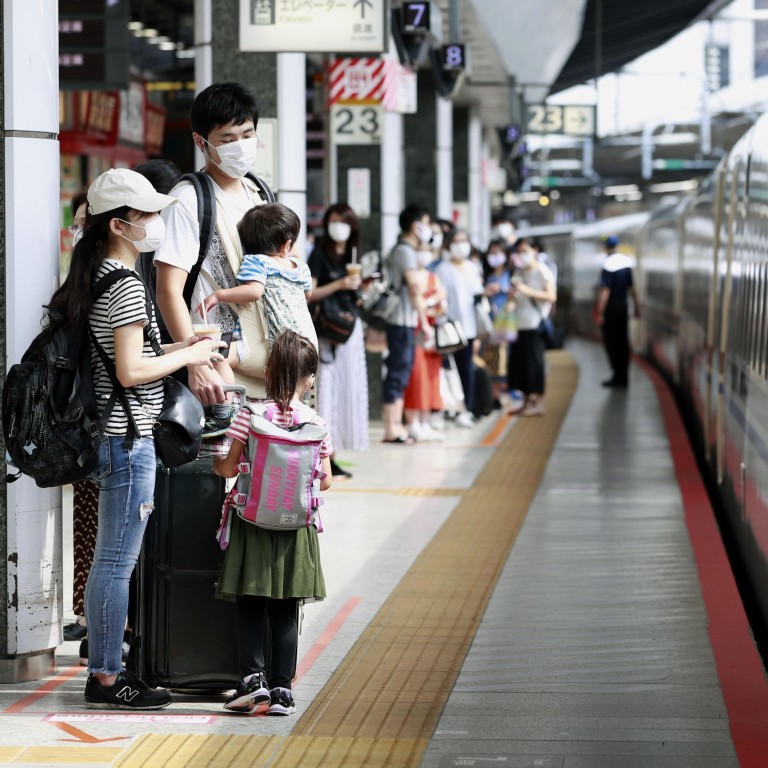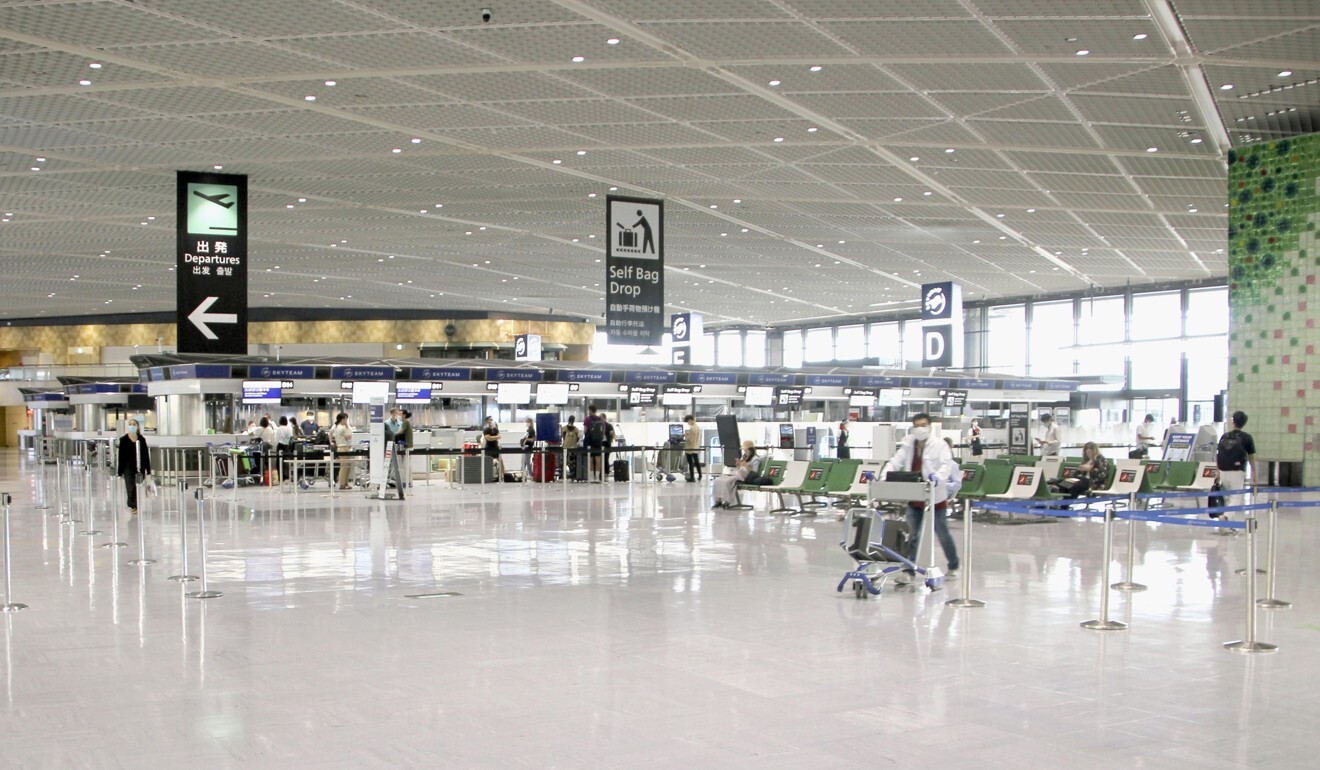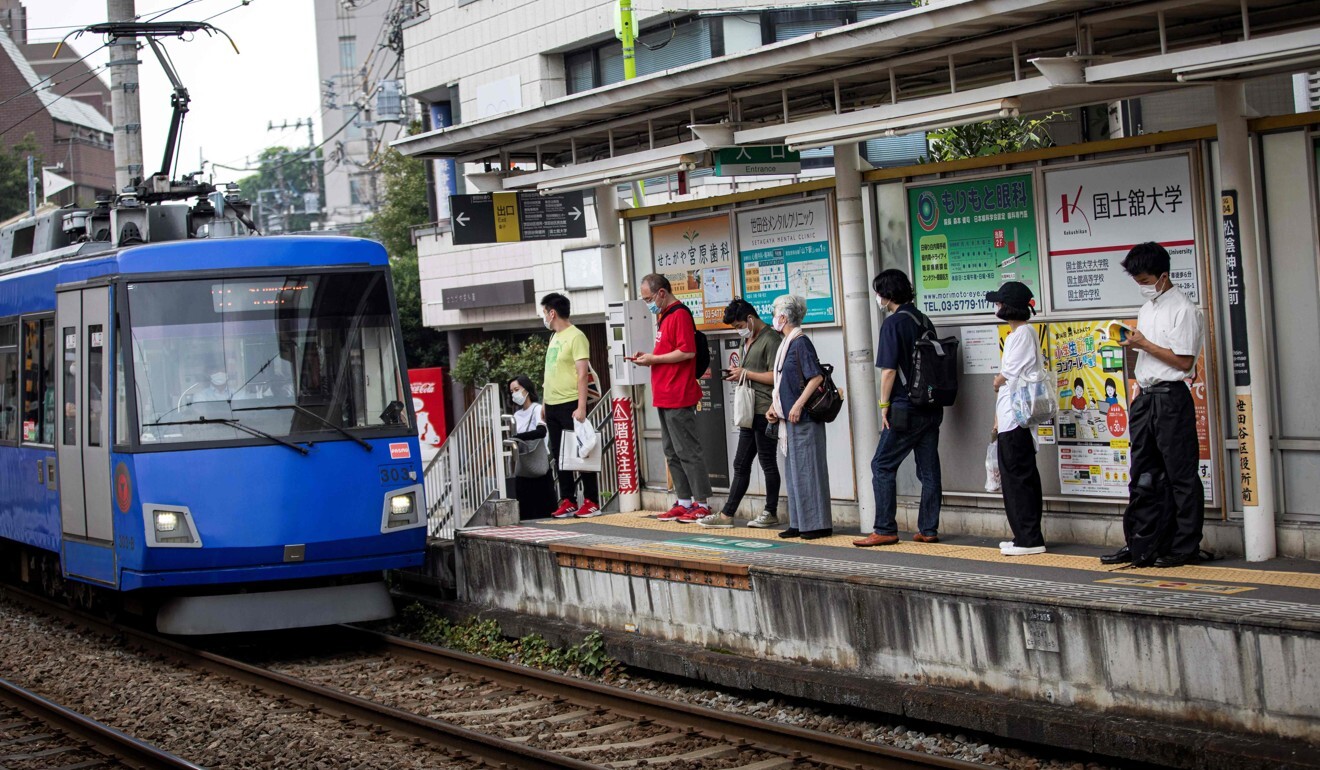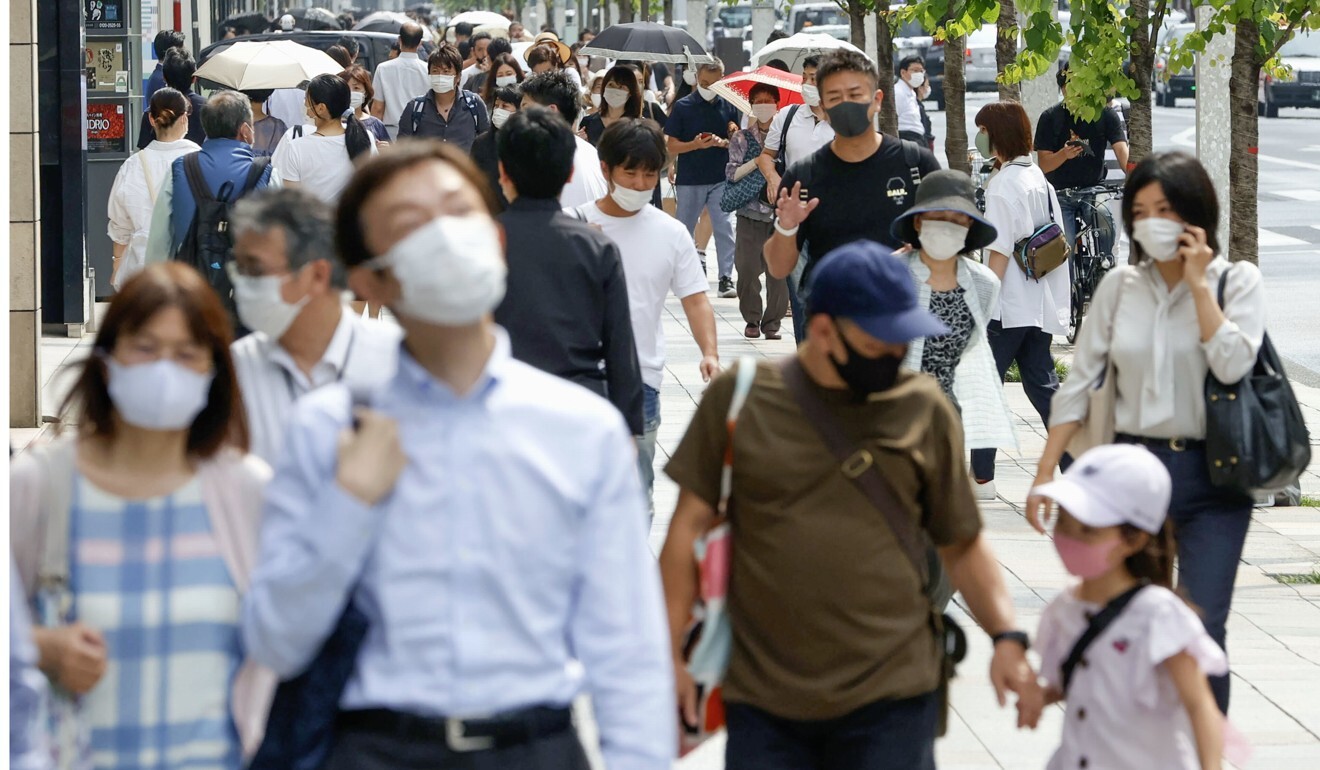
Coronavirus: Japan’s Bon summer holiday season off to a quiet start as people stay home
- Japanese have been urged to avoid travelling to their hometowns to see their families, as Covid-19 cases continue to rise
- Japan’s prefectural governors have asked the government to increase grants, which now total US$28 billion, to fund measures to fight the virus
This came as the country reported 1,564 new infections on Saturday, down from the daily record high of 1,598 logged on Friday. The Tokyo metropolitan government confirmed 429 new cases, surpassing the 400 mark for the second straight day, while Kanagawa and Saitama prefectures saw their highest daily number of new cases, with 128 and 84 respectively.
In Japan, many people return to their hometowns to see their families, relatives and friends in the Bon holiday period. “This summer is different from usual summers,” Tokyo Governor Yuriko Koike said, calling for people to make “online homecomings” to see their families online or talk over the phone.

Some shinkansen bullet trains saw only 5 per cent of their non-reserved seats filled in the morning with the highest rate limited to 70 per cent, compared to well above the 100 per cent usually seen during this time of year.
“To be honest, I was a little worried because I saw debates [on whether to travel] during this period on TV news programmes,” said a 49-year-old man who was taking a shinkansen from Osaka Prefecture to Fukuoka Prefecture.
The number of seats booked for shinkansen bullet trains between Friday and August 17 plunged 79 per cent from a year earlier, while reservations for domestic and international flights for Friday to August 16 dropped 60 per cent and 97 per cent respectively, according to train operators and airlines.
The summer holiday comes amid a travel subsidy campaign launched by the central government on July 22 to help revive the domestic tourism industry, which has been hit hard by the virus outbreak.
The central government said it has no intention of requesting people to hold off on trips to their hometowns and elsewhere during the summer holiday, even though the virus has continued to spread in parts of the country.
But governors of prefectures hit hard by a recent surge in infections, including Tokyo, have requested residents to refrain from travelling across prefectural borders, as they fear the move of people could spread the virus further.

Officials of East Japan Railway Co. distributed disinfectant sheets to shinkansen passengers at Tokyo Station to address concerns over virus infections on the train.
“I’ll take preventive measures as much as possible,” Harumi Okano, a 56-year-old resident of Ageo, Saitama Prefecture, said wearing a face mask and protective glasses and carrying disinfectant. She will visit her hometown in Osaka Prefecture and neighbouring Wakayama Prefecture with her son.
A 25-year-old man living in Misato, also in Saitama, said he decided to travel to help the tourism industry. “As this summer is different, I hope my trip can help even a little to support struggling people working in the tourism industry,” he said.
Trials of Japanese drug Avigan to begin on Philippine Covid-19 patients
As airlines have drastically reduced services amid the virus spread, flight schedule boards showed a number of cancelled flights at Narita airport, east of Tokyo.
A 39-year-old woman from Fujisawa, Kanagawa Prefecture, was waiting for a flight to Germany to meet her fiancé.
“I’m looking forward to meeting with him but also concerned because I will be quarantined upon returning to Japan,” she said.

Meanwhile, Japanese prefectural governors on Saturday asked the central government to increase the amount of extraordinary grants for local governments to fund various measures against the coronavirus pandemic.
The National Governors’ Association filed the request to increase the grants, which now total 3 trillion yen (US$28 billion), in an urgent proposal it adopted at an online meeting on the coronavirus response.
The grants are used to fund measures such as the improvement of medical capacity and aid for bars, restaurants and other businesses which suspend operations in cooperation with local governments’ request to do so, as part of efforts to stem the spread of the virus.
Okinawa governor fears ‘collapse’ of health care system, declares new state of emergency
Thirty-six of the 47 governors also exchanged views on six types of data to assess the spread of infections shown by a government advisory panel the previous day, including hospital bed occupancy rates, the percentage of people testing positive, and the weekly tally of newly reported infections per 100,000 people.
The other three are the number of coronavirus patients per 100,000 people, the weekly increase in infections and the percentage of cases in which infection routes are not known.
Japan’s 47 prefectural governments have been advised to utilise the data in deciding whether to strengthen local responses.
“Our opinions are reflected (in the six key indicators),” Tokushima Governor Kamon Iizumi, who serves as president of the association, said in the video conference.
The governors also advised that people take sufficient anti-infection measures such as washing hands frequently and avoiding dining out in large numbers if they make a trip during the Bon summer holiday season, which normally lasts until about the middle of August.

